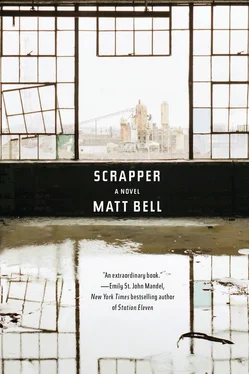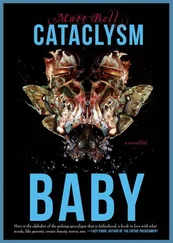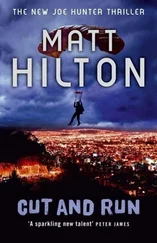The brother at the mother’s house, turning off the light in the boy’s bedroom.
The brother at the father’s apartment, where they have to share the second bedroom.
The brother in the dark with the boy. The brother hurting the boy. Because the boy is in the room. Because the easiest victim is the one at hand.
Before he was taken from me I let the brother bring the boy to my apartment. The brother driving him there even though the brother skipped school. A certain amount of normalcy necessary to retain access to the mother and the father, their separate homes.
There were ninety minutes between the end of school and when I arrived home from work and some days the boy was there, let in with his own key, and some days he was not.
On the days the brother didn’t bring the boy, where did the boy go?
The boy told me the brother took him home but now I know this wasn’t true.
I have to be waiting outside the boy’s school if I want to follow so I leave work early. It’s easier if I don’t ask, and the jobsite is big enough I can just wander off. I’m there on the street when the brother pulls up in the brown car. It’s like watching a reenactment, every time.
The brown car pulls up. The boy gets into the car. The car takes the boy away. And if the destination is harm for the boy, does it matter who’s driving?
What I want to ask: Is he your brother or isn’t he?
What I want to hear: He is and he isn’t.
I would say, I would never want to hurt anyone you loved.
He is and he isn’t.
But I would hurt anyone who hurt you.
He has but what if someone hurt him first. What if he could learn to stop, like you learned.
But I didn’t learn. But look what it cost when I failed.
The night of the brother’s birthday party, I am there too, watching from the evening gloom through the windows of the green house, its lonely outpost upon this neighborless block. Inside the house, the boy attends the brother’s birthday dinner, father and mother and sons reunited again. Chocolate cake, presents, a video game and a pair of sneakers. The celebration ends, the father leaves. I was inside just the one time but I know which window is the boy’s. I shiver and shake and watch for him to appear in the glass. Much later I am sure the boy is asleep but still there is a nightlight burning somewhere in the room. He never told me he was afraid of the dark — a ward, perhaps, against what else he had to fear.
The brother, eighteen at last — but despite his age you had to want to call him a man.
The next week the brother moves out of the mother’s house and I watch him go. He wasn’t their real son and they’d never become close and what other options were there. The mother helps him carry his boxes to the car, hugs him goodbye. At first I don’t know where the brother will go but it isn’t hard to tail him to his new place, an apartment with the fat friend in a worse part of town. I sit in the parking lot and watch his windows, try to imagine a scenario where this is how the case ends. Because if the brother is out of the boy’s life forever, then maybe there is nothing else to do.
The next day I watch as the brother picks the boy up from school. I follow the brown car as the brother drives deeper into the zone, back to the house where he had gone with his friends, his friends’ girls. From a distance I watch the house, watch the silhouettes of the brother and the boy move window to window, climbing to an upper room. It’s not the same room as when he was here with the girl. They’re on the wrong side of the house and I can’t see anything more, can’t hear what is being said or done.
What I want is an excuse, a reason to let the brother go.
Certainly I admit there are blanks in the records.
Certainly I fill in what I can’t prove.
I speculate. I deduce.
I make connections.
What I want for the boy is an end to fear but first I have to leave the boy in danger a little longer. Another crime, like closing the basement door one last time before returning with the hacksaw, before rescuing the boy from the dark of the low room.
I say I want to protect the boy but to do so I cannot imagine any action that is not violence against someone else. And is this limitation found in the world or is it my own most obvious flaw.
THE HEAVY DETECTIVE APPEARED at the apartment door, flashing his badge to gain entrance. As if Kelly could refuse, as if the detective believed he would.
You again, Kelly said. The detective.
Kelly invited him in, waved him toward one of the two chairs seated at the kitchen table. The hockey game was on the television but Kelly made no move to turn down the sound. He lit a cigarette, held out the pack to the detective. The detective waved away the offer but removed his own from the inside pocket of his jacket.
Sanchez, the heavy detective said. My name is Sanchez. And today is the three-month anniversary of you walking into the hospital with Daniel in your arms. Ninety days without any new evidence means the kidnapping is officially a cold case. I’m supposed to stop working on it.
Daniel. How long had it been since Kelly last heard the boy’s name spoken aloud? The day he’d given him up.
I didn’t know, Kelly said.
You’ve been seeing him, the detective said. He comes here after school.
Kelly smoked and maintained eye contact and waited. The detective had not come to tell Kelly things Kelly knew, unless he had come to tell Kelly he knew as well. There was something the detective had come to hear him say but Kelly didn’t know what. These weren’t questions, required no confession.
Daniel’s parents mentioned it, the detective said. They said they’re not concerned but I am. I’m concerned about why the boy comes here, about what you do when the boy comes. I’m concerned because there are no clues in this case except you.
The boy is my friend, he said.
Daniel is your friend, the detective said. And my name is Sanchez. Detective Sanchez.
Kelly said, Yes. Detective Sanchez.
But that’s not how you think of me.
No. It’s not.
It was simply a guess. A deduction by a detective. And anyway, he wasn’t wholly correct.
Never my boy , Kelly said. The boy . I think of him as the boy .
Yes, that’s right, the detective said. That’s the way you say it, the way you’ve said it from the first time we met. The way you said it when you made those phone calls where you wouldn’t identify yourself. As if it could have been anyone else calling. So tell me: What does it mean when you call him the boy ?
Kelly didn’t answer. It wasn’t anything so crude as a clue. As a child he’d learned how in the beginning there were the animals, nameless in the Garden, nameless and without knowledge of their uses. The first man, the giver of names, subjugating the beasts into a system of kingdoms, phyla, classes, and orders: thorny-headed worms, wheel carriers, claw bearers, all the rest. It was an impossible task to name all of creation but in the task there existed a chance to own the world.
And so what did the man who named nothing own.
He’s not my boy, Kelly said. He comes and goes as he pleases.
It’s a mistake, the detective said. That’s what I came here to tell you. You are the sole person of interest in this case. You have placed yourself at the scene. If you are innocent of an unsolved crime, then it is a mistake to continue to associate with the victim.
He said, You have made yourself a suspect.
Читать дальше












